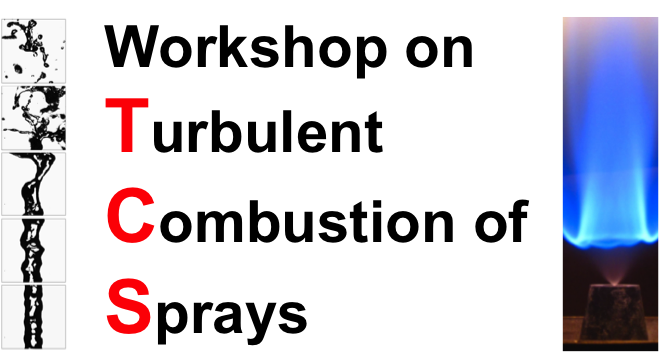
ERCOFTAC Workshop SIG28
8th International Workshop on Turbulent Combustion of Sprays (TCS8)
22nd January 2023
Location: Steigenberger Nile Palace Luxor Hotel and Convention Centre in Luxor, Egypt
For frequent updates please also visit the homepage: www.tcs-workshop.org
A FINAL PROGRAMME IS NOW AVAILABLE!
Organizing committee:
- Prof. Eva Gutheil (Heidelberg University, Germany)
- Prof. Assaad R. Masri (The University of Sydney, Australia)
- Prof. Epaminondas Mastorakos (University of Cambridge, United Kingdom)
- Prof. Bart Merci (Ghent University, Belgium)
- Prof. Venkat Raman (University of Michigan at Ann Arbor, USA)
- Prof. Bruno Renou (INSA Rouen Normandy University, France)
- Prof. Dirk Roekaerts (Delft University of Technology, The Netherlands)
- Prof. Amsini Sadiki (Darmstadt University of Technology, Germany)
The Universities of Cambridge, Ghent, Rouen, Delft and Darmstadt are member of SIG28.
Objectives:
The aim of this workshop series is to stimulate progress in the understanding of turbulent spray combustion by organizing focused discussions on open problems and promising new initiatives and collaborations in this area. A long term objective is to advance capabilities to model turbulent spray flows, both reacting and non-reacting. In order to do so it links recent developments in studies of dispersed multiphase flow and combustion. The intention is to have interactive discussion between experts and young researchers and between modelers and experimentalists.
The 8th workshop will focus on spray atomization. Currently the absence of accurate measurements and predictive models for atomization forms a bottleneck for accurate description and prediction of turbulent spray flames. Better understanding of primary and secondary atomization is needed to eliminate limited knowledge of initial spray characteristics. New experimental techniques and modeling techniques are being developed make progress in understanding how atomization influences both the dense spray region and the dilute region. They will be reviewed and discussed at the workshop. Benchmarking computational models of complete spray flames exploiting detailed experimental datasets remains in place. This is the day preceding the 12th Mediterranean Combustion Symposium.
Program:
In order to reach the objectives a program is set up with the following elements:
- Two keynote speakers, one more research oriented and one more application oriented (from industry)
- Discussion of joint comparative studies of numerical simulations of a number of target test cases for which extensive experimental databases are available
- Poster session enabling all participants to show their work in progress
- Discussion sessions to identify essential topics needing further investigation
Databases and proceedings:
In preparation of the workshop a special effort is made to collect and compile the best possible experimental datasets useful for model validation. The databases remain available for use afterwards and in a number of cases are suitable for inclusion in the ERCOFTAC wiki.
The proceedings reporting on results of this and previous workshops will be published as a special issue in Flow, Turbulence and Combustion (to be discussed with the editors).
Fee's structure:
ERCOFTAC Members:
- 200 Euro fee for persons from ERCOFTAC member organisations or companies
- 100 Euro reduced for students from ERCOFTAC member university groups
ERCOFTAC Non-members:
- 220 Euro fee for persons not from ERCOFTAC member organisations or companies
- 120 Euro reduced fee for students not from ERCOFTAC member university groups
Registration:
Registration and payment of the fee for participation in the workshop can be made through this webpage and alternatively by contacting ERCOFTAC CADO: admin@cado-ercoftac.org
For registrations after January 12, payment using PayPal rather than via invoice is strongly preferred.
Accommodation:
Reservation and payment of accommodation in the hotel must be reserved through the MCS12 website: https://mcsymposium.com. It should be indicated that you are a TCS workshop participant in the following way:
- if you are not attending MCS12: just add in the field ‘full name’ the text “(TCS participant)”, e.g. “John Smith (TCS participant)”
- if you are attending MCS12 without paper or WIP: just insert in the field ‘paper’ the text “(TCS participant)”
- if you are a regular MCS12 participant: just add “and TCS” in the field of paper/WIPP; e.g. “MCS12-100-TC and TCS”.
